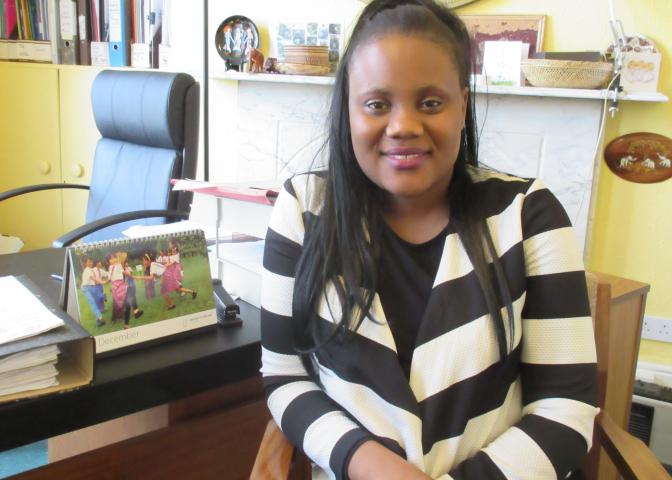Yamikani Kadam'manja
(Malawi)
MSc in Project Management, University of Limerick
Yamikani works with the Anti-Corruption Bureau in Malawi. She received a fellowship in 2015-16 to study for a Master of Science in Project Management at University of Limerick.

... after this course, I think I’ll be more innovative in trying to provide new approaches on how we can handle issues of corruption because the public expect a lot from us.
I work at the Anti-Corruption Bureau (ACB) which was established under the Corrupt Practices Act. It is to provide necessary measures for the prevention of corruption. It does this through a three-pronged strategy: prevention; enforcement (investigation and prosecution); and public education. My work is about trying to establish partnerships with institutions (public and private), providing advice on the best ways to prevent corruption. I am also responsible for facilitating the design and implementation of programmes in different institutions which are in line with the National Anti-Corruption Strategy (NACS). It’s a strategy where we focus on civil society, judiciary, the arms of government, traditional leaders, media, private sector and religious organisations to try to embed anti-corruption measures.
I am doing an MSc in Project Management at University of Limerick. So far, the course has changed my perception of things. At first when I was thinking about project management, I thought it was about finishing the project in time within budget but there is more to it. Project management is more that when you do a project, it should have an impact on people. It’s about benefit realization. Does it reach the intended outcomes? Being a PM is not just about having technical skills, it’s also about having people management skills. My course tackles both and it’s very practical.
Performance management is a crucial area of project management because poor service delivery is an issue especially in the public sector. For example, in Malawi we have so many projects that are happening and that usually fail and I want to find out is it due to lack of performance management systems in place or is it due to lack of competent people in the institution, or is it culture? Maybe we don’t engage the stakeholders, maybe we don’t consult widely so that when you have a system, you want to get people to embrace it and be part of it.
For my dissertation research topic, I’m going to look at a new system in project management called the AGILE project management system. AGILE is a methodology where you do things in phases, you have deliverables at each and every stage. Can AGILE project management methodologies be a solution to project failures in public institution service delivery? It’s about quality and constant consultation.
My life in Ireland is an adventure. I’m the only African student in my class. I now have an experience of cultural diversity. I know how to work with people of different cultural backgrounds. I’m going to miss the approach to time management here. People here, when they say they’ll meet at 7pm, they’re there at 7pm. That’s efficiency.
So after this course, I think I’ll be more innovative in trying to provide new approaches on how we can handle issues of corruption because the public expect a lot from us. Having a dissertation on project management, I believe it can be like an eye-opener to others to understand more and to present it at government forums where my suggestions can be taken on board. With my degree, promotion will come and I will be a leader at ACB.
I would like to see Malawi having projects that finish on time, that deliver benefits to the rural people, to see policies being embraced by everybody being implemented. We have good policies but we have so many problems around implementation. For the future, I’d like a paradigm shift. For example, people think that the Anti-Corruption Bureau is there to prevent corruption yet we need to do it as one and take a holistic approach where everyone is involved.
When you have a corruption-free Malawi, development can happen.